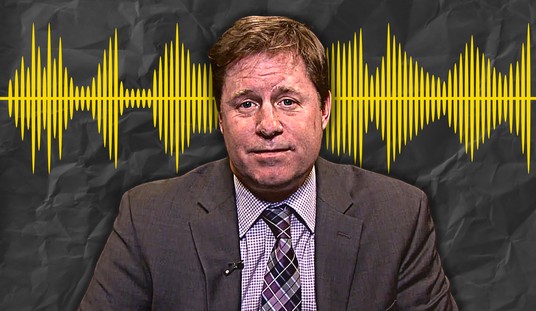Ever since Michael Wolff’s book, Fire And Fury: Inside The Trump White House, the liberal hope that Trump is mentally unfit is being nurtured on steroids. That’s the end game. There was the birther theory on the fringes of the right wing to get Obama removed from office. And now, we have this Trump is insane theory that’s dominating liberal circles. Both will end in failure, but it helps liberals nurse their wounds from their stinging 2016 defeat. One doctor has become a focal point for mentally evaluating the president’s mental health. Dr. Bandy Lee said that she’s a) not advocating a political outcome; and b) not offering a diagnosis, but rather an assessment on dangerousness. As a result, she and others are advocating he undergo an examination. She also touched upon the ethical waters regarding these issues. Yet, Lee was also quite clear that this whole affair is touchy politically, and that forcing the president to undergo such an exam will certainly look like a coup. Eliza Barclay of Vox Media interviewed her earlier this month [emphasis mine]:
Of course, the question of his mental health would ultimately come down to a medical opinion. And no doctor, as far as we know, has evaluated the president’s mind for fitness to serve as president.
Yet there is a growing call from a group of psychiatrists — the best medical experts at interpreting aberrant human behavior — for exactly this: an emergency evaluation of the president’s mental capacity, by force if necessary.
Leading this call is Bandy Lee, an assistant professor in forensic psychiatry (the interface of law and mental health) at the Yale School of Medicine who has devoted her 20-year career to studying, predicting, and preventing violence.
She recently briefed a dozen members of Congress — Democrats and one Republican — on the president’s mental state.
[…]
Eliza Barclay: One thing that seems to make a lot of people uncomfortable about psychiatrists like yourself commenting on Trump’s mental disturbances is that you have not evaluated him. So how is your assessment ethical? Why should the public take it seriously?
Bandy Lee: We are assessing dangerousness, not making a diagnosis. The two are quite separate: Assessing dangerousness is making a judgment about the situation, not the person. The same person may not be dangerous in a different situation, for example. And it is his threat to public health, not his personal affairs, that is our concern.
A diagnosis, on the other hand, is a personal affair that does not change with situation, and you require all relevant information — including, I believe, a personal interview. Most people who are dangerous do not have a diagnosable mental illness, and most people with mental illness are more likely to be victims than perpetrators.
Also, once you declare danger, you are calling first for containment and removal of weapons from the person and, second, for a full evaluation — which may then yield diagnoses. Until that happens, physicians and mental health professionals are expected to err on the side of safety and can be held legally liable if they fail to act. So we’re merely calling for an urgent evaluation so that we may have definitive answers.
In doing that, we are fulfilling a routine, public expectation of duty that comes with our profession — the only part that is unusual is that this is happening in the presidency. Perhaps this is reason to build in a fitness for duty, or capacity, exam for presidential candidates, just like for military officers, so that this does not happen again.
Eliza Barclay: Okay, so you’re calling for an evaluation; you’re serious about that. How could he possibly be evaluated, since it seems like he wouldn’t voluntarily do it?
Bandy Lee: We encounter this often in mental health. Those who most require an evaluation are the least likely to submit to one. That is the reason why in all 50 states we have not only the legal authority, but often the legal obligation, to contain someone even against their will when it’s an emergency.
So in an emergency, neither consent nor confidentiality requirements hold. Safety comes first. What we do in the case of danger is we contain the person, we remove them from access to weapons, and we do an urgent evaluation.
This is what we have been calling for with the president based on basic medical standards of care.
Surprisingly, many lawyer groups have actually volunteered, on their own, to file for a court paper to ensure that the security staff will cooperate with us. But we have declined, since this will really look like a coup, and while we are trying to prevent violence, we don’t wish to incite it through, say, an insurrection.
Eliza Barclay: And you’ve been on Capitol Hill talking to lawmakers about this, too.
Bandy Lee: Yes — at first I was keeping this confidential and was horrified when it first leaked out to the press sometime over the summer, but [the lawmakers] seem surprisingly okay about it, and so I will tell you.
First, I do not reach out to legislators, and I don’t advocate for particular political outcomes. Those are the basics of being an expert consultant. I am making a medical warning, and it’s not a partisan issue. They can make it one, but we ourselves cannot be politically motivated or invested in a certain outcome. This is always the case, from the most basic courtroom consult to being called to testify before the different branches of government. We are expected to be professional in this way.
Medical ethics encourage us to be of public service by consulting with the government. So when Congress members reach out to us, we are open to consulting with them, no matter what party. A half-dozen of them got in touch after the Duty to Warn conference at Yale in April. Then an influential former Congress member started making arrangements for me to testify before all of Congress. That kept getting postponed while the Mueller investigation advanced.
That was when a former assistant US attorney stepped in and used her contacts to arrange for meetings with a dozen key Congress members [including Rep. Jamie Raskin (D-MD)] on December 5 and 6. James Gilligan of NYU, one of the foremost experts on violence in the country, and I went and spoke to them about medical matters only, to share our medical knowledge and concern.
Recommended
The interview went into areas of the president’s annual health exam, which occurred on January 12, and whether a capacity exam could be administered, though Lee said since she’s not Trump’s doctor, she doesn’t feel she has the right to contact the president’s medical team about administering one; a capacity “is an independent evaluation of the ability of someone to carry out a certain function, such as to stand trial or to make medical decisions for oneself, or in a more everyday setting, to carry out a job.” Lee added that every member of the military undergoes one. The president is in excellent health, by the way.
Politico first reported the congressional meeting about the Trump’s mental health that Barclay mentioned; they occurred in December. The Weekly Standard wanted to know whom the anonymous Republican senator was, calling every GOP office. All couldn’t confirm such a meeting. Of course, one can list the usual suspects (cough! Flake, Corker—cough! Cough!), but the publication found a reason no one would confirm:
In an on-the-record phone call with TWS Saturday afternoon, Lee admitted her “meeting” with a Republican senator was not actually scheduled and that it was, in her own words, “accidental.”
“The meeting happened—it wasn’t arranged in advance,” she said. “It was accidental. It was incidental, I will say. It was incidental.”
The only details Lee recounted to TWS were that the interaction allegedly took place on December 5, when she was in a Senate office building. Asked whether her “meeting” with a Republican senator happened in an office hallway, where visitors often get a chance to see lawmakers in transit, Lee paused.
“I won’t comment. I’m sorry,” she answered.
Whatever the circumstances of the encounter, when TWS asked whether the nameless Republican senator was sympathetic to her view of Trump’s mental health, Lee was quick to admit they were not.
“No,” she answered. “I mean, they engaged us, but that’s about it.”
Lee wouldn’t name the senator, nor provide any further details to the Standard. She didn’t tell Politico the identity of the mystery senator either. Okay—so without a proper evaluation, we should all stop speculating, right? I mean you don’t need a medical degree to view this whole narrative as insane. Even the American Psychiatric Association has called on members of their profession to quit it with providing unfounded opinions about people's mental health that are not their formal patients:
"We at the APA call for an end to psychiatrists providing professional opinions in the media about public figures whom they have not examined, whether it be on cable news appearances, books, or in social media," the group wrote. "Arm-chair psychiatry or the use of psychiatry as a political tool is the misuse of psychiatry and is unacceptable and unethical."
[…]
The APA had to remind members of the 1973 Goldwater Rule.
“The Goldwater Rule ... makes it unethical for a psychiatrist to render a professional opinion to the media about a public figure unless the psychiatrist has examined the person and has proper authorization to provide the statement,” Dr. Saul Levin, the group's CEO and medical director, said in a statement. “APA stands behind this rule.”
Lee is confident that she is playing within the ethical rules, adding that she and other pushing for a Trump mental health evaluation are not diagnosing him in the process.
Say what you will about the ethics of this issue, of which Lee elaborates further in the lengthy interview, but she, and anyone who believes in this, has to know this will only be viewed as one thing: a backdoor attempt to remove a democratically-elected president. That’s all. Non-partisan consultation or not, this is a political nightmare waiting to happen. It’s probably why organizations, like the APA, have such rules in place; all with a sign saying keep a distance of 500 miles, especially when it comes to something political. Also, South Korea’s president gave Trump “big credit” for the latest inter-Korea talks prior to the Winter Olympics, which has de-escalated the situation on the peninsula. So, that sort of undercuts the whole notion that those tweets will cause a nuclear war.
























Join the conversation as a VIP Member